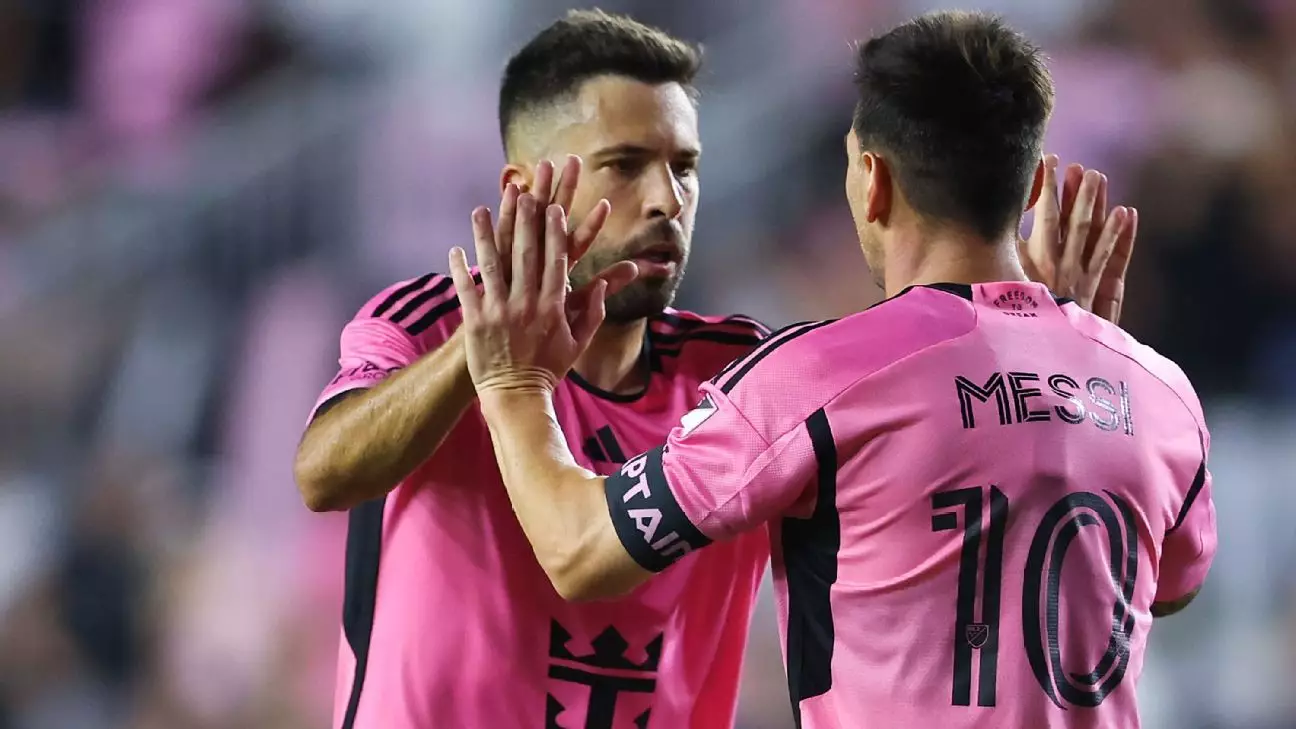Inter Miami CF stands on the precipice of a thrilling challenge as it gears up to participate in the 2025 Club World Cup. With FIFA President Gianni Infantino confirming Miami’s inclusion after their triumph in the 2024 Supporters’ Shield, the stage is set for an exhilarating face-off against some of the world’s elite football clubs. Defender Jordi Alba, recently acquired from FC Barcelona, has not shied away from acknowledging the enormity of this undertaking, emphasizing the many hurdles that lie in wait for the team.
As Inter Miami prepares for a competition that now features an expanded format of 32 teams, the gravity of the situation becomes evident. They will go head-to-head with storied franchises like Manchester City, the reigning champions of the UEFA Champions League, and Real Madrid, a perennial powerhouse in European football. “It will be difficult,” Alba remarked candidly. The acknowledgment of the challenge ahead highlights a crucial realization: Miami is not simply stepping into a tournament; they are entering a battleground against centuries of footballing tradition and retention.
The enormity of the competition is further compounded by the fact that while seasoned players like Alba, Lionel Messi, and Sergio Busquets have faced such opposition before, the majority of their teammates lack experience against the upper echelons of European football. The implications of this inexperience cannot be overstated; facing internationally recognized players and teams will require not only skill but also adaptability and quick learning. It will be a crucial test of the players’ capabilities to step up when it matters most.
Coaching Perspectives: The Value of Experience
Inter Miami’s head coach, Gerardo Martino, recognizes the incredible honor associated with this invitation. However, he is also cautious about the disparities present in such an elite competing environment. “The elite are the elite and the rest are the rest,” Martino articulated, drawing attention to the established power dynamics that dominate global football. The club must strike a balance between recognizing their historical limitations in comparison to the global giants while simultaneously leveraging the unique advantages they possess.
Martino believes that Miami’s selection for the tournament comes as a validation of their sporting achievements. It is a testament to their hard work in the Major League Soccer (MLS) landscape. Moreover, he hinted at the need for MLS to consider how clubs can better prepare for such high-stakes competitions in the future—a proactive approach for sustaining competitive growth. Future strategic measures will be vital if American teams want to be seen as more than just underdogs on a global stage.
The Broader Perspective: An Evolution in MLS
The expansion of the Club World Cup to include 32 teams marks a significant evolution in global football, reflective of FIFA’s attempts to challenge traditional hierarchies. This change, while daunting, also opens doors for MLS clubs like Inter Miami to make a name for themselves against more established clubs. With 12 slots reserved for teams from Europe, and the remaining spaces distributed across various continents, the tournament promises a rich tapestry of footballing styles and cultures.
However, the expanded tournament brings its share of pressures. The bar has been set higher than ever, and Inter Miami must navigate not just their participation, but how to leave a lasting impact. Messi’s arrival has undeniably raised expectations and transformed the club’s image, but the players must rise to the level that the occasion demands.
Competing in the Club World Cup can serve as a launching pad for greater aspirations within the MLS framework. Martino envisions a future where the league is not just a feeder system for international clubs, but one that becomes a competitive force in its own right. This perspective emphasizes that to grow, MLS needs to invest more in their players: be it through tactical training or mental fortitude to face high-stakes matches.
While Inter Miami’s journey into the 2025 Club World Cup comes with substantial challenges, it also possesses the potential for tremendous growth and opportunity. If they can navigate the inherent difficulties while building on the experience of their star players, there is hope that they will not only compete but thrive on this grand stage, signaling a potential shift in the global football narrative dominated traditionally by European giants.

